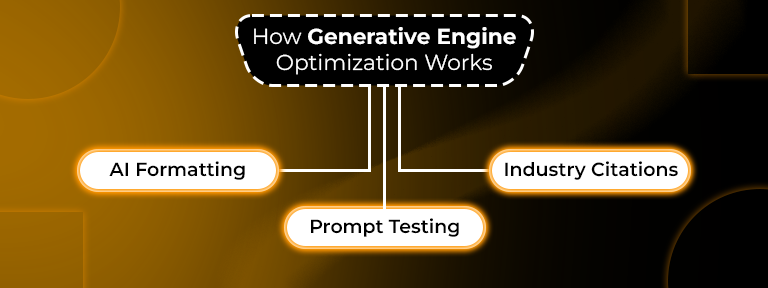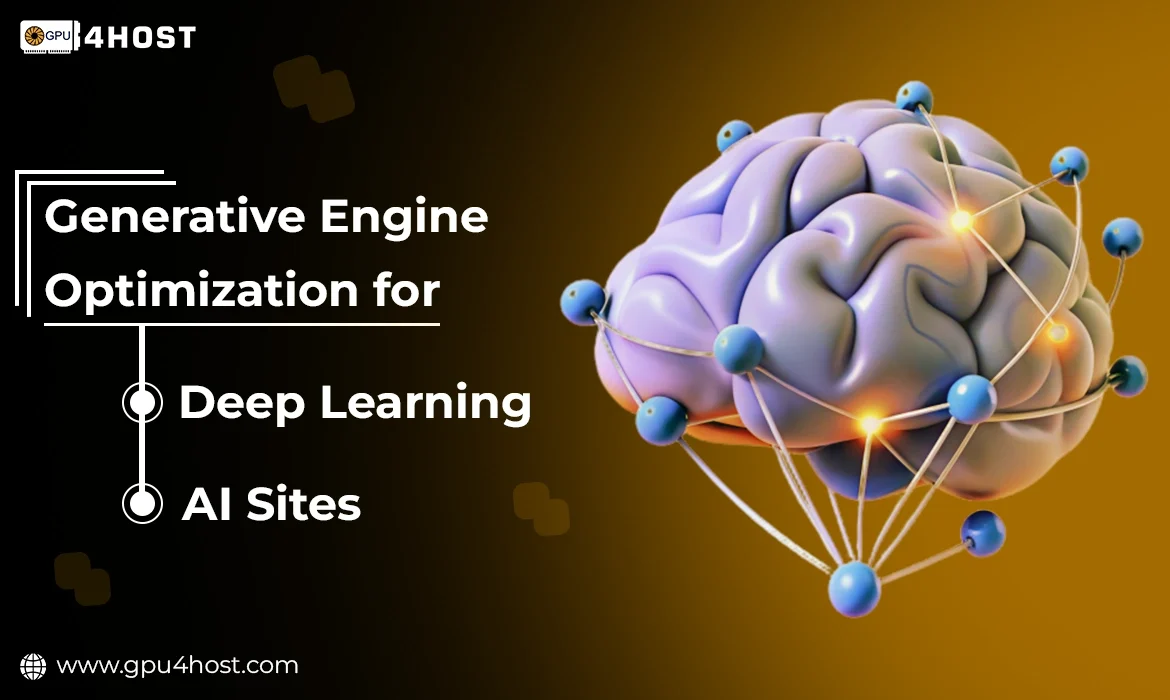Generative Engine Optimization
Generative Engine Optimization for Deep Learning & AI Sites
In the growing era of search, a new concept is transforming how all brands are discovered, highly ranked, and remembered—Generative Engine Optimization (GEO). As traditional SEO starts to share the stage with AI-based search engines such as ContentLab AI, Perplexity Labs, and BrandMentions, organizations must now optimize not only for Google but also for generative engines.
If you’re opting to drive organic traffic, boost your online presence, and gain main authority in an AI-powered world, learning generative engine optimization is no longer an option— it’s important.
About Generative Engine Optimization
Generative Engine Optimization (GEO) basically refers to the procedure of optimizing your content to be easily understood, properly cited, and expanded by AI-based tools such as generative search engines, large language models (LLMs), and content summarizers.
Apart from traditional SEO, which emphasized optimizing for focus keywords and rankings in SERPs, GEO is all about:
- Becoming a reliable source that generative models reference.
- Make sure that your content is well-structured and highly rich in context.
- Developing authority signals that feed the AI model training data and real-time citations.
Think about GEO as the well-known bridge between content creation and AI visibility.
Why GEO Is More Important Than Ever
AI-based tools such as Gemini, ChatGPT, and Claude, along with expert search engines like Perplexity Labs, are quickly transforming how all users find and use data. These engines don’t show 10 blue links—they produce answers as per authoritative, well-planned, and regularly referenced content.
If your brand is not being fully cited or referenced in these answers, you’re completely lost in the new search model.
This is the case where Generative Engine Optimization stands out—it guarantees that your content becomes the main part of the conversation AI is having with the world.
How Generative Engine Optimization Works

GEO adds various traditional SEO principles, but it moves the whole focus toward AI-based discovery. Here’s how you can apply it successfully:
1. AI-Friendly Formatting
Utilize structured content such as:
- FAQ sections
- Bullet points
- Headings (H2, H3)
- Clear definitions & takeaways
This optimizes schema markup compatibility and helps AI analyze your information more purely.
2. Custom Prompt Testing
Tools such as Custom prompt testing and ContentLab AI help you replicate how AI replies to queries in your chosen niche. Use all of these strategies to refine your content until your website constantly gets referenced by AI-based tools.
3. Use of Industry Citations
Generative engines basically love content that backs up all the claims. Add data from reliable sources such as:
- Perplexity Labs reports
- AI benchmark studies
- Research white papers on machine learning and AI-based models, such as NVIDIA A100
This strengthens your skills and improves AI citation chances.
GEO Content Creation Best Practices
If you wish to rank high in generative engines, your content must be thoroughly informative, simple to summarize, and related to AI prompts. Here’s what that truly means:
Utilize Semantic Relevance, Not Only Keywords
Don’t always stuff your article only with keywords. Rather than make sure you are contextually answering user intent, mainly challenging queries, AI might summarize.
Create AI-Citable Segments
Every single section of your blog should work as a self-contained “nugget of knowledge” that an AI could easily utilize. Think:
- “What is Generative Engine Optimization?”
- “Advantages of a GPU dedicated server for GEO from GPU4HOST”
- “Best platforms for multi GPU server hosting”
Use Technical Authority
For tech-intensive content—such as AI model training, deep learning, or real-world NVIDIA A100 use cases—always back your content with real setups, data points, and case studies. Hosting your tasks on a GPU server or an AI server also includes credibility.
Infrastructure Matters: The Role of GPU Hosting in GEO
When talking about Generative Engine Optimization, your infrastructure really matters. Why?
Because some of the businesses building GEO tactics also generate genuine datasets, run AI-based prompt models, or train personalized LLMs, all of this needs GPU-based servers.
Suggested Infrastructure for GEO-Heavy Brands:
- GPU server: Perfect fit for scalable AI content generation and refined models.
- GPU dedicated server: Provides full control and power for GEO experimentation.
- Multi GPU server: Perfectly suited for training challenging AI-based prompts or handling real-time user queries.
- NVIDIA A100 setups: Offers industry-dominating performance for deep learning and AI tasks.
With the help of GPU hosting, you not only optimize your website’s speed and uptime (which influences user engagement and AI-based citations), but you also prepare your whole backend for cutting-edge GEO strategies such as:
- Generating different content for AI model testing
- Developing proprietary datasets
- Producing smarter internal search systems
Building Authority Signals for Generative Engines

AI-based search engines don’t only scan your content—they assess your credibility.
To boost your chances of being cited or highly ranked in AI summaries:
- Get well-known backlinks from popular domains.
- Get added to industry forums and communities.
- Contribute useful content in Facebook community groups and small business forums.
- Guarantee constant schema markup, mainly for FAQs, reviews, and guides.
- Publish white papers, research, or original data on different topics such as Generative Engine Optimization or AI-based hosting performance.
Measuring GEO Growth: What Are the Appropriate KPIs?
Traditional SEO utilizes metrics such as bounce rate, impressions, clicks, and domain authority. In the case of Generative Engine Optimization, you’ll also have to track:
- Citations, especially in AI summaries (track with different tools such as BrandMentions)
- Prompt response precision (utilizing custom prompt testing tools).
- Organic traffic is impacted by AI-based tools.
- Engagement from AI-powered platforms.
- Content importance in zero-click environments.
How GEO Complements Traditional SEO
GEO doesn’t replace SEO—it simply extends it more.
| Traditional SEO | Generative Engine Optimization |
| Emphasize more on search engine results and keyword ranks | Emphasis on citations in AI-based answers |
| Give priority to backlinks & on-page SEO | Gives priority to an AI-friendly structure and authority |
| Click-based visibility | Summary-based visibility |
| Google and Bing focused | Adds ContentLab, Perplexity, and ChatGPT |
| Manual search queries | AI prompt-heavy outcomes |
If you’re not uniting the two, you are just leaving visibility (& organic traffic) on the table.
Summary: Future-Proofing Your Content Strategy
Generative Engine Optimization is not only a buzzword—it’s the future of online visibility. As more users shift to AI-based tools for answers, suggestions, and research, GEO will define who gets easily seen, shared, and reliable.
Even if you are a tech-based startup, an AI researcher, or an online business, adding GEO principles, supported by GPU-based infrastructure, is a planned move.


